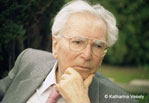Due to popular demand, I am posting notes from our October teleclass on marketing over the Holidays.
Teleclass Outline with Ed Petty — Notes
All marketing is broken down to:
1. Procedures. These are either special, one time events, or standard recurring. Some have the purpose of immediate results (direct marketing), some more long term (indirect marketing).
2. Motivation. Desire. Wanting to implement these procedures. (Discipline.)
3. Marketing management. Review, Planning, Implementation.
Motivation: You are listening (or reading this) so you are motivated. But you have to get others motivated as well. You have to get and stay inspired. It is Ok to be a cheerleader. What’s wrong with a little cheer? And the more you cheer.. the more you find to cheer about!
The Marketing Manager System:
- Meeting weekly: Review/make plans/Implement (assign steps/dates)
- Who is responsible and responsible for what
- Calendar Special Promotions/Events
- Checklist of Recurring Procedures/Events
Procedures: Special events/promotions
NOVEMBER
- Holiday Turkeys (Care to Share) (Ham for Christmas)
- Donation Programs: Shelters, Toys for Tots, Coats for Kids, Food for Families
- Scheduling Patients over the Holidays. (Plan ahead so they keep up with their care.)
DECEMBER
- GNO (Girls Night Out/ Shop Before You Drop)
- Gift coupons
- Saturday with Santa
- Poinsettias (with gift coupons)
- Planning, training – sharpen the saw.
- Do scheduling for new year: “Flexibility Screenings” with gyms, lunch and Learns with businesses
- Gifts for Allies and those who referred: Box of nuts, organic flowers, cups, pens, caps, t-shirts. Cards.
JANUARY
- Lending Library: Supersize Me, Fast Food Nation, King Corn, Sugar Blues, Food Inc. End of Overeating
- Workshop on Nutrition and Fitness
- Annual Reactivation Program
- External Workshops, Screenings, and networking
FEB
- Doctor’s With A Heart Donation Program
- Have a Heart – Oklahaven Children’s Chiropractic Center – link
- Valentine’s Gift Coupons
MARCH
- Leprechaun Appreciation Day (Kid’s Day) link
Procedures: Recurring
Community Education: Talks or Awareness Weeks
- Nov: Flu
- Jan Feb Food, Supplements/ Fast food Series — With a Dietitian and a trainer. February: Heart Heath- blood pressure
- March: Headache Awareness Week
Communication Channels
- Newsletter
- Email Newsletters – NEW SERVICE FOR 2010 – We will do this for all clients on Standard Management Programs or higher.
- Press Releases
- Ads on other special newsletters: Chamber of Commerce, YMCA, Church Bulletins
- Web site/Face Book – Fan /LinkedIn
Internal Recurring:
- Morning case management meetings – (include a joke.)
- Staff meetings
- Patient Success Stories, Upbeat Atmosphere: Take a “vibe check”: too seriousness or pleasant can welcoming atmosphere. Where’s the party?
- Spinal Care Class
- Whiteboard
- Brochures
- Staff education
- WOC (Whip out card)
- Mission




